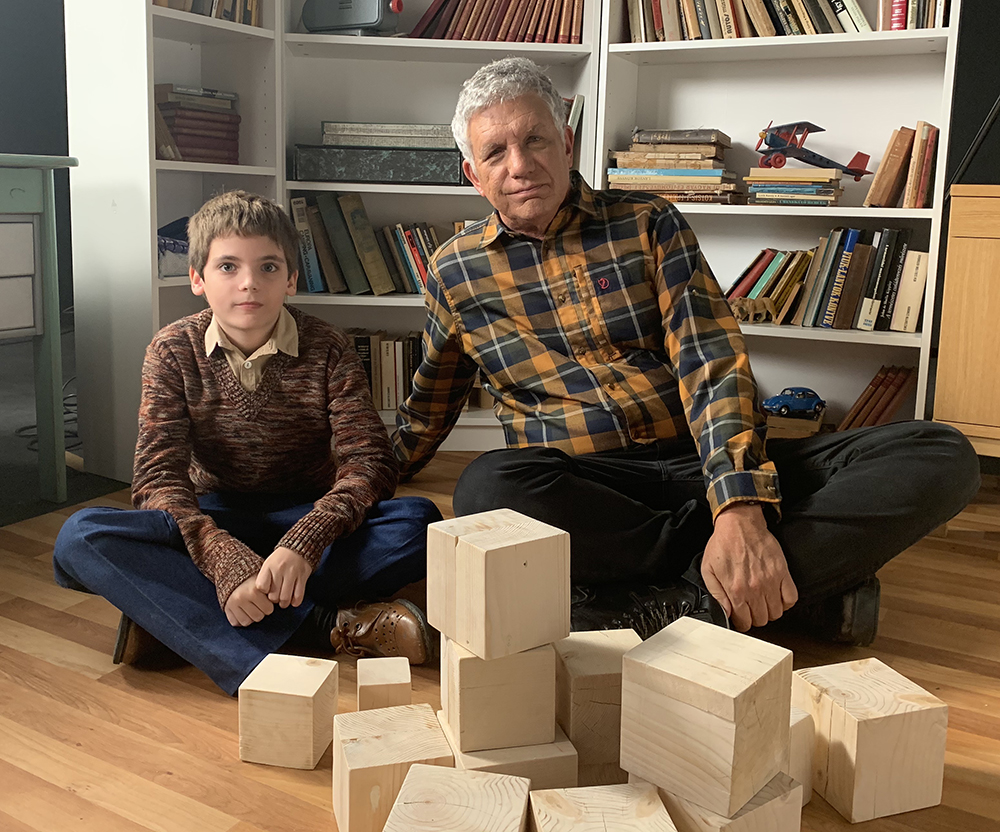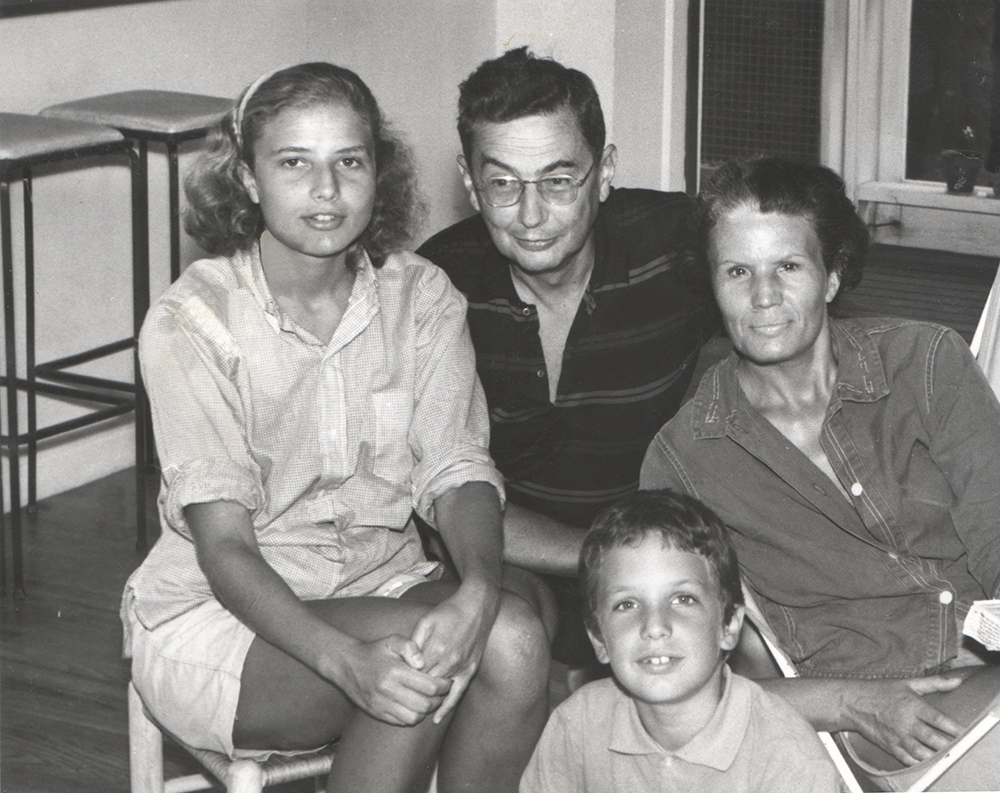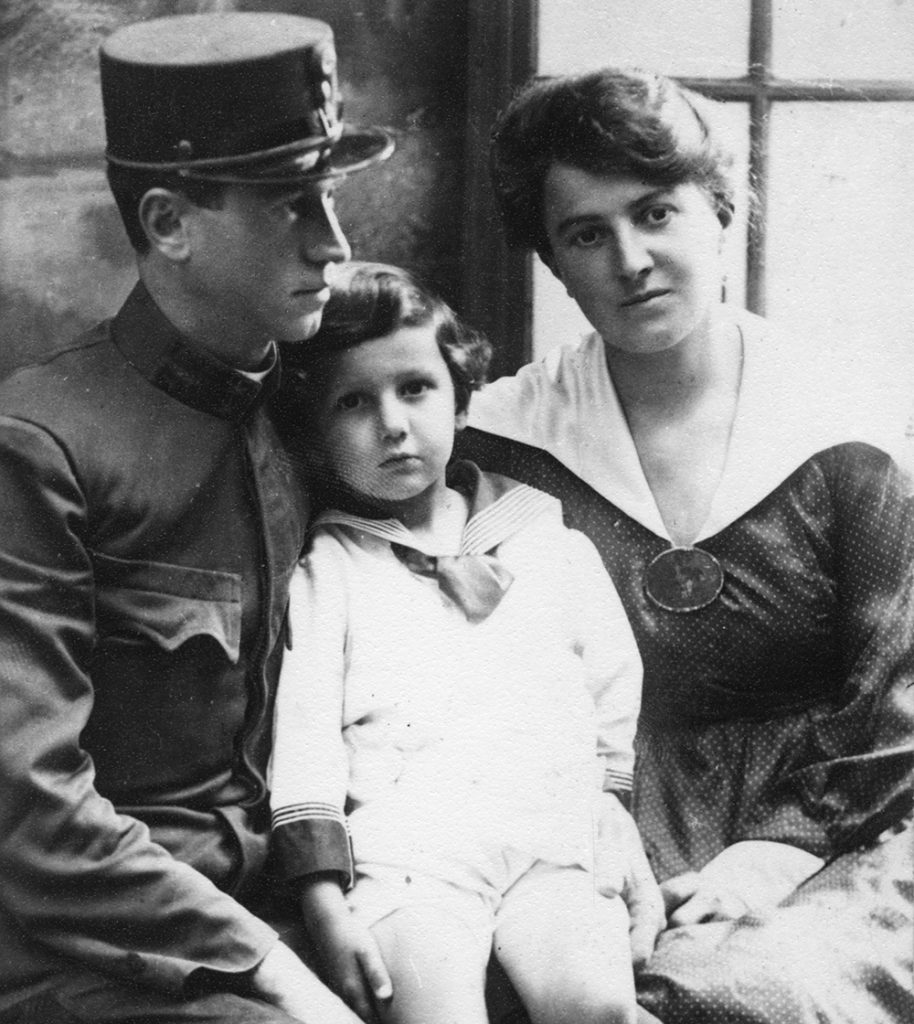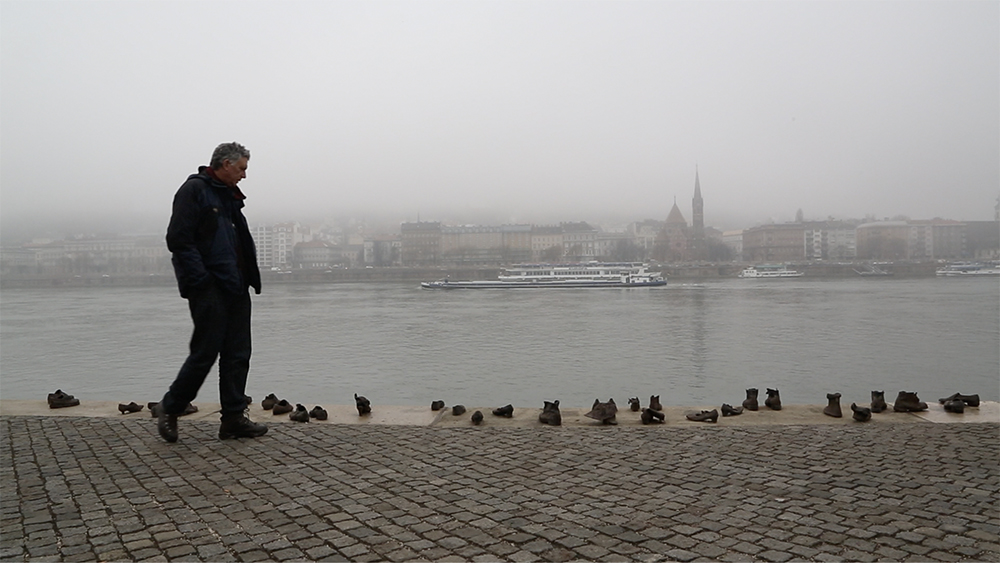
So… what has happened to The Restless Hungarian film, to which this website was dedicated almost seven years ago, along with the book? Many of you have asked me where and when they can see the film streaming, online.
The is a short answer and a long answer to this question. The short answer is that the film will soon be available to buy or rent, streaming.
The long answer, one that I have been living with for months, but not accepting, is this: The film has not been welcomed by the world in the way I hoped it would be. Seven film festivals, most notably the San Francisco Jewish Film Festival and the United Kingdom Jewish Film Festival, have screened the film to appreciative audiences but the curators of the world’s “A list” festivals, from Tribeca to Berlin, have demurred. The Restless Hungarian lies outside the current zeitgeist. It is not entertainment. It about a Hungarian Jew who whose story played out in the mid-20th century. It is about intergenerational trauma and a son and filmmaker who tries to make sense of it all.
Film scholar Annette Insdorf, author of Indelible Shadows: Film and the Holocaust wrote:
The Restless Hungarian is a riveting personal documentary. Tom Weidlinger explores his family’s legacy of brilliance as well as trauma, unearthing private secrets that have universal resonance. It’s a compelling addition to the growing sub-genre of Holocaust cinema that focuses on adults who discover their Jewish ancestry – once hidden because of the Holocaust – late in life.
Notwithstanding such praise from Insdorf and others, I have been quite depressed at the failure of my “riveting” magnum opus to gain traction.
I remind myself that when I set out on this journey at the age of sixty, it was at the end of a successful thirty-five year career as a maker of social justice documentaries which aired on public television and are still in educational distribution. After a career of making films about issues in the public eye I vowed to myself that I would:
- think of my audience simply as people to whom I wanted to account for myself and my family as truthfully as possible.
- not take money from anyone who wished to make an investment.
- not think about distribution and promotion while making the film because doing so might subtly taint my fidelity to the story.
I kept my vow. I have made the film I wanted to make. It cost about $250,000 plus five years of my time. Financially I was able to do this because of money my father left me which I received in 2013, fourteen years after his death. That was the year I started to work on the project.
The journey of making the film and writing and publishing the companion book was both exhilarating and harrowing. At one point I considered suicide. As I tell the audience in the first five minutes of the film:
I wondered if I was losing my mind. I had… just gotten to the point in [telling my father’s] story where I am born and enter his life. What had been an “objective tale about a famous man” became personal. Suddenly I was writing about by father and me… my mother and my sister. I thought it would be easy to finish the book and make this film, but to do so I had to bring them back to life in my mind. I had to get close to them without succumbing to the evil that had threatened to engulf us all.

Then, at the very end of the film:
I believe there is a purpose in descending into the depths of the past and befriending the sorrowful souls who still dwell there in our hearts. I have done this with [the members of my family]… and younger versions of myself, hoping not only to make them completely real in my heart, but perhaps reaching though the veil of time and space, to let them know that they are truly seen, honored, and loved. I say to them, “Look, dear family. I am well. I am alive. And I embrace you.

It’s been eighteen months since I submitted The Restless Hungarian to the first film festival. Festivals won’t take a film after it has had a general release which is why it has not been available until now. The scenario one hopes for is that festival exposure will lead to an offer of a distribution deal. There was none. I shouldn’t complain, given the vow that I’d made to myself, but at the same time a part of me believed that somewhere, somehow, the work would resonate with an idealistic and enlightened gatekeeper.
Since it became clear that this would not happen I have been mulling over, better to say anguishing over, what to do. And I have sought solace by throwing myself into a wonderful new project, Keep On Moving Forward, about the singer/songwriter activists known as Emma’s Revolution.
But getting back to the anguish: How do I justify spending a quarter of a million dollars and five years of my life to tell a story to a few hundred festival goers, friends and family?
A shaming voice in my head says: This is a manifestation of privilege and the epitome of narcissism.
Another voice says: You cannot have done otherwise. The work was on your path. Even knowing what you know now, you would do it all over again.

Yet another voice reminds me of a mantra I have often repeated to myself. This is the Mantra of Due Diligence. The mantra says “anything worth doing is worth doing to the very best of your ability.” I have exercised due diligence in all sorts of ways while making the film, wading through the tedious weeds of logging, transcribing, working with translators, and tracking down rights to obscure bits of archive film footage, and collecting, naming and verifying the vast array of materials that went into the film. I have been a researcher, a detective, a librarian, and a restorer. Since completing the film, I have researched and reached out to festivals and distributors. I have followed leads, many of which led to dead ends. Sometimes I wondered if my due diligence bordered on an obsessive compulsive disorder. When occasionally people (although never filmmakers) express surprise at how long it took me to complete the film I think, if you only knew!
I finally became exhausted with due diligence, which led to a kind of breathlessness, always wondering what have I not done that I should have. I’ve discovered there are legions of distribution gurus, festival mavens, and filmmaker hand-holders who are happy to tell you the secret of what you are missing…for a hefty fee. Once or twice I was tempted until one honest publicist looked at the film and summed up the zeitgeist reality: “Nice film. It’s just not hip and happening.”
The condition of breathlessness finally manifested itself physically. I came down with a bronchial infection. Four days in bed with a fever, it was finally ameliorated with antibiotics. As my breath slowly came back to normal, I simply laid aside The Restless Hungarian. I worked on our land in glorious spring weather fixing irrigation lines, planting, and making repairs around the house. And there was Keep on Moving Forward, with its promise of soul-nurturing creative engagement.
Yet, as I write this, I realize that I am not quite done with The Restless Hungarian. Trying to explain my exhaustion with due diligence to a friend, another phrase popped into my head, one that I have not used before.
“Honor the work.”
I want to honor The Restless Hungarian. I would like to place it somewhere at a public crossroads where anyone could see it, pick it up, and be enriched by it.
I made one last research effort and discovered something called Film Hub. It a ubiquitous distribution system that uses technology that did not exist when I started work on the project years ago. (I visualize a vast rotating space station with shuttles coming and going from every point in the galaxy.) Film Hub is an entity that licenses thousands of hours of content to hundreds of channels worldwide. No fees. 80/20 revenue split in favor of the filmmaker. Contract can be terminated at any time.
They say:
Every year, thousands and thousands of films and series fail to secure distribution because they are subjectively rejected by traditional gatekeepers. All of these titles still have an opportunity to capture value, and many of those titles’ audiences are vastly underestimated… We’re very focused on democratizing access to channel distribution.
Is it a scam? So far it seems legit. I may give it a go as a means of honoring this work in the new world we live in. Stay tuned. In the meantime watch The Restless Hungarian with the link on this page or at: https://vimeo.com/ondemand/therestlesshungarian. You’ll need a basic (free) Vimeo account. It is easy to sign up,
Judith Herzog
September 16, 2023 at 10:23 amHi Tom
I just saw your film on Tubi, it is an excellent film, I come from an Hungarian jewish family, my parents escaped to South America after the war, to Argentina an Chile , I have never seen footages of those places, mainly Arica and Bolivia… your story has a resonance with the secrets kept in the family , in my case my mother survival of the camps and my father escaping from them
Hope this film will be shown more and more
Thank you again
Summer Brenner
May 26, 2023 at 10:57 amTom, Last night Michael and I watched the film, both of us deeply moved. And while it was your burden to tell your family’s story, specific to its own time and circumstance, it resonated with the particularities of our own stories, and thus touched a common nerve.
About the masterly filmmaking. Remarkable archival footage that never hammers the viewer with trite or clichéd meanings. Also remarkable are the sites (or remnants) on three continents of your family’s landmarks. And most remarkable for me are the eloquent reenactments of family scenes: like rooms in a dollhouse with a minimum of decor, they convey the maximum of psychic distress. They’re mysterious, in some cases almost mystical. In fact, the entire film has an aura of mystery and beauty.
I completely sympathize with your disappointments and concur that it should have received a wider reception. However, it’s a tremendous achievement, now available for the world to discover. Bravo, Tom. And thank you.
Laura Paull
May 19, 2023 at 8:35 amTom, I concur with the second voice: “You cannot have done otherwise. The work was on your path.” Rather than privilege and narcissism, I see a profound justice in spending your inheritance from your father on a book and film about him, about your whole family. But more important than preserving him in biography was the inner work the project(s) called forth from you. After all, real art is not about producing an external thing, a star of accomplishment to pin to your lapel. It is the excavation and encounter with your deepest self in the journey of production. You know this. You did it. And you needed to do it. In what better way could you have spent that monetary inheritance? I think now you are in the process of detaching from the product a bit, and coming around to embracing the experience of making it. Which is the higher reward.
Deborah Kaufman and Alan Snitow
May 17, 2023 at 10:55 pmWe just watched the film and loved it. Thank you for sharing this personal story. It was so well done! Agonizing and beautiful. Sending solidarity about the gatekeepers…Keep up the great work. We are your fans.
Vicky Elliott
May 16, 2023 at 8:44 pmYour film is brilliant. The story is extraordinary. It just has to stand on its own, and all of us are so glad you put everything into it. Narcissism has nothing to do with it.
Lorraine Whitman
May 16, 2023 at 7:20 pmHow enormously have I been enriched knowning Paul, you, your sybs, Solveig! All the more so after watching your honest, terrible/beautiful film. Thank you for allowing me to contribute a bit of memory